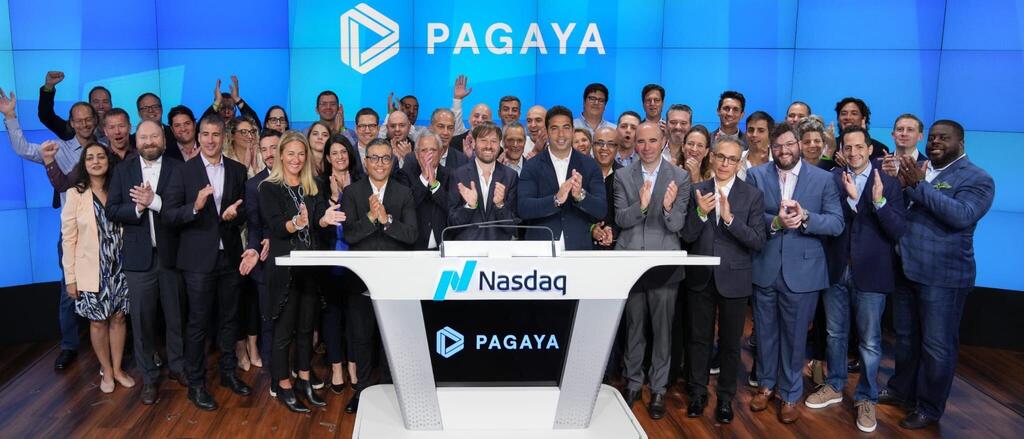
Pagaya focused on long-term goals despite dejecting opening day on Nasdaq
The Israeli fintech company saw its shares plummet on its first day on Wall Street after completing its SPAC merger at an $8.5 billion valuation
“We know our valuation is high compared to our competitors,” said Pagaya co-founder and CEO Gal Krubiner as his company went public on Nasdaq on Thursday. “But the investors from which we raised money are experienced and sophisticated and look at long-term goals. They don’t look at returns after one year, but are used to operating in the private market and look five and 10 years ahead.”
The SPAC merger between Israeli fintech unicorn Pagaya and EJF Acquisition Corp. was completed on Thursday after EJF announced last Friday that its shareholders voted to approve its combination with Pagaya at a valuation of $8.5 billion. However, Pagaya shares were down by over 20% during their first day of trading, entering a market very different to the one that existed when the company initially signed the deal with EJF back in September of last year.
Pagaya’s valuation at the time has since become unrealistic, with competing companies of the likes of Upstart and Affirm only being valued at around $3-5 billion, despite having larger revenue than Pagaya.
“The investors that entered at the PIPE stage knew where the wind was blowing and some of them like Tiger Global also invested in earlier rounds and know the company well,” explained Krubiner.
EJF originally brought $288 million into the transaction from its trust, however much of the sum was withdrawn ahead of the merger. The PIPE was upsized from $200 million to $350 million earlier this year led by a group of investors including Tiger Global, Whale Rock, Singapore’s sovereign wealth fund, the Healthcare of Ontario Pension Plan, and G Squared. This takes Pagaya’s cash reserves to over $500 million, allowing it to continue its accelerated growth and also make acquisitions.
In a surprising twist, Barclays bank notified EJF a couple of weeks ago that it will no longer serve as an underwriter for the SPAC, relinquishing any commission it was set to receive from the deal. That led to some concern among investors, but Krubiner insisted there was never any reason to worry.
“Barclays’ departure had nothing to do with Pagaya or the SPAC, but was part of the trend in which investment banks are stepping back from SPAC deals due to regulatory changes implemented by the SEC. Goldman Sachs and Bank of America also announced that they were leaving SPACs they were working on,” said Krubiner.
Goldman Sachs did indeed announce in May that it was stepping away from all the SPACs it was involved in. However, Barclays only left the Pagaya merger, and did so at a surprising timing, just one week prior to the deal being finalized. J.P. Morgan continued to serve as an exclusive financial advisor to Pagaya, while UBS remained the SPAC’s other underwriter.
Pagaya, founded in 2016 by CEO Gal Krubiner, CTO Avital Pardo and CRO Yahav Yulzari, announced in April that its revenue in 2021 reached $475 million, exceeding its projection by 17%. Its 2021 revenue was an increase of 379% compared to its 2020 revenue of $99 million. Pagaya uses machine learning and big data analytics to manage institutional money, with a focus on fixed income and alternative credit.















